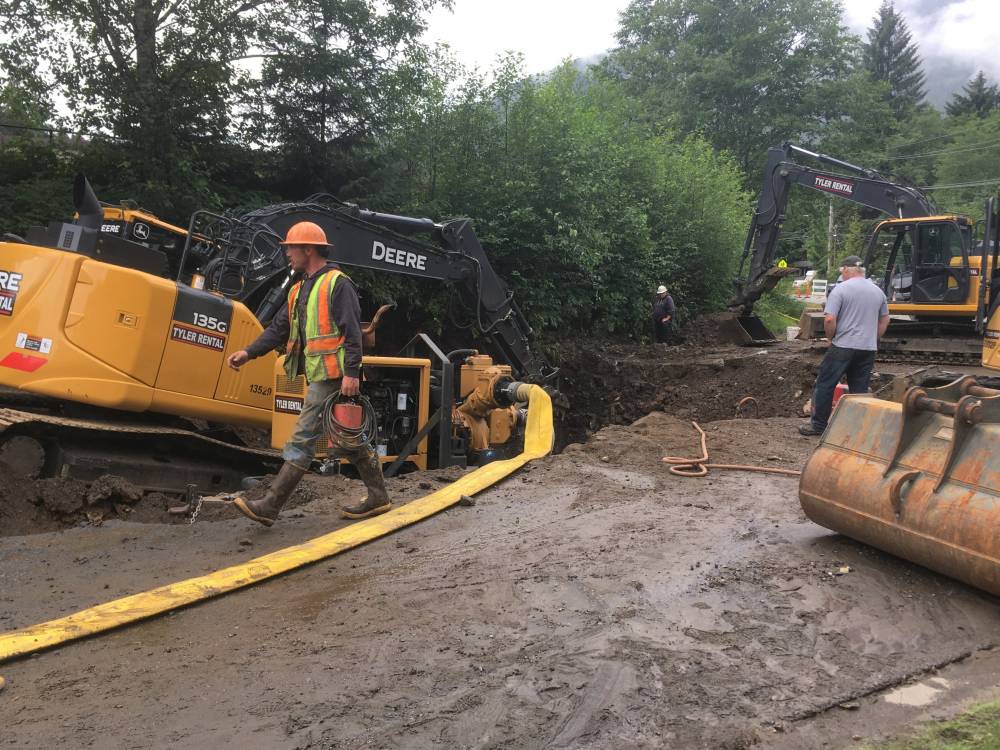
KPU Water Division work crews fix a broken water main on Schoenbar Road in July 2019. (Leila Kheiry/KRBD)
Water and power rates are going up in Ketchikan. That’s following a vote by a divided Ketchikan City Council after concerns were raised about steady losses by the city-run utility.
Ketchikan Public Utilities’ water division hasn’t broken even for at least a decade. That’s despite rate increases nearly every year. And KPU’s electric division hasn’t fared much better — it’s also been in the red for most of the past decade.
City leaders said those kinds of losses aren’t sustainable.
“These are public-owned, and we as a city, and we as the council have a responsibility to make sure that we have appropriate funding to to manage, repair and maintain those,” said Ketchikan mayor Bob Sivertsen.
He told the council that rising wholesale power prices set by the Southeast Alaska Power Agency were the reason for the electricity hike. The power authority is financing an $11.7 million undersea power cable to improve reliability for Petersburg. But the consortium-wide wholesale power rates also impact the cost of electricity to Ketchikan’s consumers.
As for water, City Manager Karl Amylon told the council that some of the city’s pipes are falling into disrepair.
“The day of reckoning is coming,” Amylon warned.
He listed failing water mains on Schoenbar Road that are estimated to cost millions to fix. And he warned that larger expenses could be ahead due to the city failing federal water standards.
“Not only do we have the aging infrastructure, we’re facing the mandate from the EPA that could force this community to spend in excess of $70 million to build a water filtration plant and add $2 to $3 million a year in annual increased operating costs. You add that to the 10 years of losses, you know, rates can’t stay static,” Amylon said. “Someone’s got to pay for this.”
But City Council Member Sam Bergeron was among those on the council who pushed back.
“To say that our rate structure is going to address that, I just don’t really think is accurate,” Bergeron said. “Because the need is far in excess for us to pay any rate that would meet that.”
The rate increase is projected to cost an average household about $75 a year, or $6.25 a month.
But Council Member Abby Bradberry said an ongoing economic crisis with no end in sight was the wrong time to raise rates.
“Our community members and businesses have gone 16 months without revenue and currently don’t know when those revenues are going to pick up again. They’re spending their savings to even stay afloat,” she said.
Council Member Janalee Gage said she doesn’t like seeing her power and water bills go up. But she said that if the city continued to avoid raising water rates, the problem would only get worse.
“And then we’re going to have where the increase goes from a few dollars to a full $50. And I, personally, don’t want to see that,” Gage said.
The electric rate hikes passed 4-3 with Bradberry, Bergeron and Council Member Riley Gass opposed. Gass switched sides and supported raising water rates, saying the increases were tough but necessary. Those passed 5-2.
The new rates take effect June 1.





